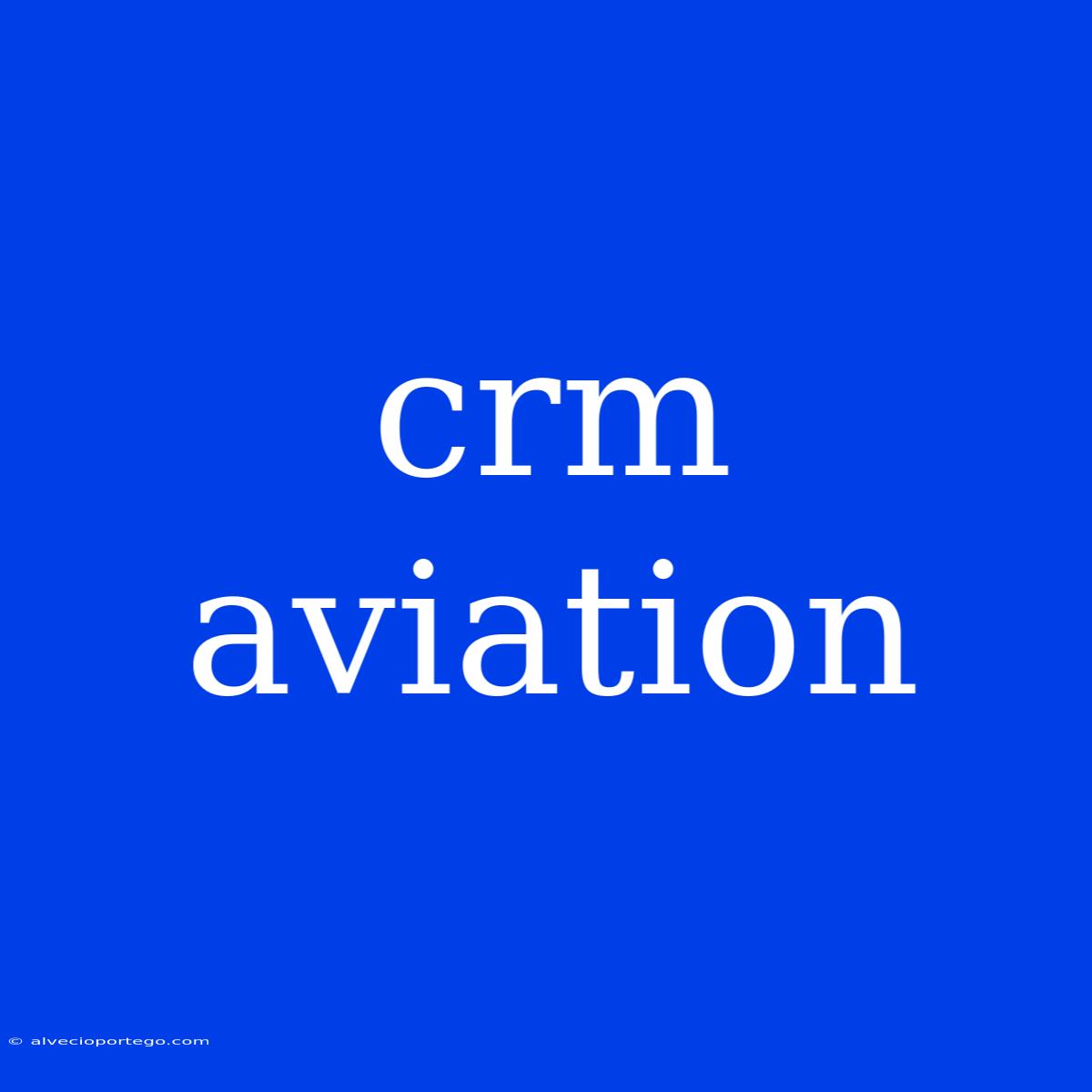CRM in Aviation: A Vital Tool for Safety and Efficiency
What is CRM?
CRM, or Crew Resource Management, is a crucial aspect of modern aviation safety. It's a comprehensive approach that emphasizes teamwork, communication, and leadership among flight crews to minimize the risk of human error and enhance operational efficiency.
Why is CRM important in aviation?
Aviation is a highly complex and demanding industry. Flight crews face immense pressure, dealing with high stakes, intricate systems, and constant decision-making under time constraints. Human error is a significant factor in aviation accidents, and CRM plays a crucial role in mitigating this risk by:
1. Improving Communication and Teamwork:
- Clear and concise communication: CRM emphasizes structured and effective communication within the cockpit. This helps avoid misinterpretations and ensures everyone is on the same page.
- Active listening: CRM encourages active listening among crew members, promoting understanding and a collaborative atmosphere.
- Leadership and followership: CRM teaches crew members to recognize and utilize the strengths of different team members, fostering effective leadership and followership within the cockpit.
2. Enhancing Situational Awareness:
- Sharing information: CRM encourages crew members to share information freely and openly, ensuring a complete picture of the situation.
- Monitoring workload: CRM promotes monitoring and managing workloads effectively, preventing crew fatigue and reducing the chance of overlooking crucial information.
- Recognizing and managing stress: CRM emphasizes the importance of recognizing stress and implementing strategies to manage it effectively, ensuring optimal decision-making under pressure.
3. Building a Strong Safety Culture:
- Openness to feedback: CRM fosters a culture of openness, where crew members feel comfortable providing feedback and raising concerns without fear of reprisal.
- Continuous learning: CRM encourages continuous learning and improvement, promoting the adoption of best practices and enhancing crew competency.
- Respect for authority: CRM teaches crew members to respect the authority of the pilot-in-command while simultaneously encouraging constructive challenges and suggestions.
The Impact of CRM
CRM has a proven track record in enhancing aviation safety. Research and data analysis have shown a significant reduction in aviation accidents and incidents since the implementation of CRM programs. It has also led to increased efficiency, improved communication, and a more proactive safety culture within the industry.
CRM Training
CRM training is an integral part of pilot training and ongoing professional development for all aviation personnel. These programs typically involve:
- Classroom sessions: Covering theoretical concepts of CRM, communication techniques, leadership skills, and situational awareness.
- Simulations: Real-life scenarios are recreated in simulators to allow crew members to practice CRM principles and develop critical thinking skills.
- Role-playing exercises: Crew members engage in role-playing to practice effective communication, conflict resolution, and decision-making in challenging situations.
Conclusion
CRM is an essential component of modern aviation safety. Its impact on reducing human error, enhancing communication, and building a strong safety culture is undeniable. The continuous development and refinement of CRM programs will ensure that aviation remains one of the safest forms of transportation in the world.

